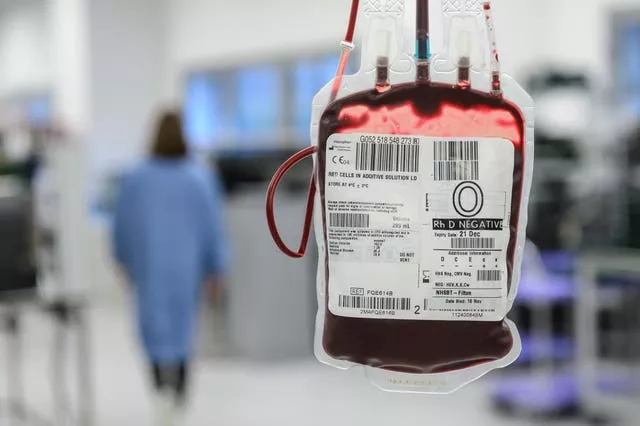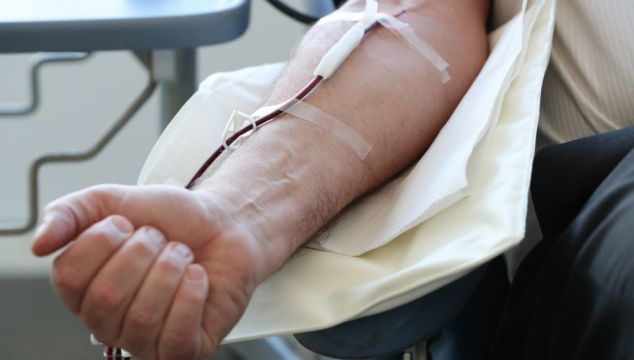Campaigners have said they are disappointed that gay and bisexual men will have to wait four months after sexual contact with other men before they can donate blood.
The Irish Blood Transfusion Service (IBTS) has reduced the time men who have sex with men (MSM) have to wait to give blood from 12 months to four months.
The change, which came into effect on Monday, has been welcomed, but many campaigners said gay and bisexual men still face restrictions in donating blood in Ireland.
It comes after a report to the IBTS board in September by an independent advisory group established to review the criteria.

The IBTS said the aim of the changes is to make blood donation more inclusive and to welcome additional donors from the LGBT community.
The deferral for people who take pre or post-exposure prophylaxis – taken to reduce the risk of contracting HIV – is also reduced from 12 months to four months.
HIV Ireland welcomed the changes.
The organisation, which served as a member of the Social Behaviours Review Committee, had argued that the applicable criteria for donations should “dispense” with blanket deferral periods aimed at specific cohorts of the population in favour of individual risk-based assessments.
Stephen O’Hare, executive director at HIV Ireland, said: “As a result of the changes being implemented today more gay and bisexual men will be able to safely donate blood four months after last sexual contact.
“This is a significant reduction in the previous deferral period, down from 12 months, and is in line with the recommendation towards the adoption of an individualised risk-based approach as recommended by the review group.
“These changes bring Ireland more in line with practices in neighbouring jurisdictions.”
Adam Shanley, mPower programme manager at HIV Ireland, who served on the review group, said he was disappointed that some aspects of the recommendations had yet to be implemented.
“Despite a move in the right direction we are disappointed to learn that the IBTS decided not to implement a recommendation to remove oral sex as a reason for deferring gbMSM, as agreed by the review group,” he said.
“Medical evidence supports the finding that oral sex carries virtually no risk for HIV transmission and was correctly considered an unnecessary barrier for gay and bisexual men to donate blood.
“With a backdrop of dwindling blood supply in Ireland, it is of the utmost importance that current scientific advice is followed so that more people can donate safely to meet demand.
“Today’s change is only a first step in achieving a more inclusive approach.
“We now want to see work commence on the introduction of individualised risk assessment which the IBTS has agreed to implement by the end of 2022.
“This will create a fairer system which will ensure donors, regardless of their sexuality, are being asked questions that successfully identify higher risk.”
Tomas Heneghan, who took a High Court case against the state for a previous lifelong ban on gay men in Ireland donating blood in 2015, said he could “not fully welcome” the amended eligibility rules.
“Under the new rules, gay and bisexual men will continue to face restrictions that are not applied on a risk basis, and are not based on science or medicine, but instead have been plucked from someone’s head and applied without real scrutiny,” Mr Heneghan said.
“The positive from the amended eligibility rules, however, is of course that some potential donors who could safely donate blood service up to today may donate in this country.”
Mr Heneghan is to donate blood for the 20th time next month.







